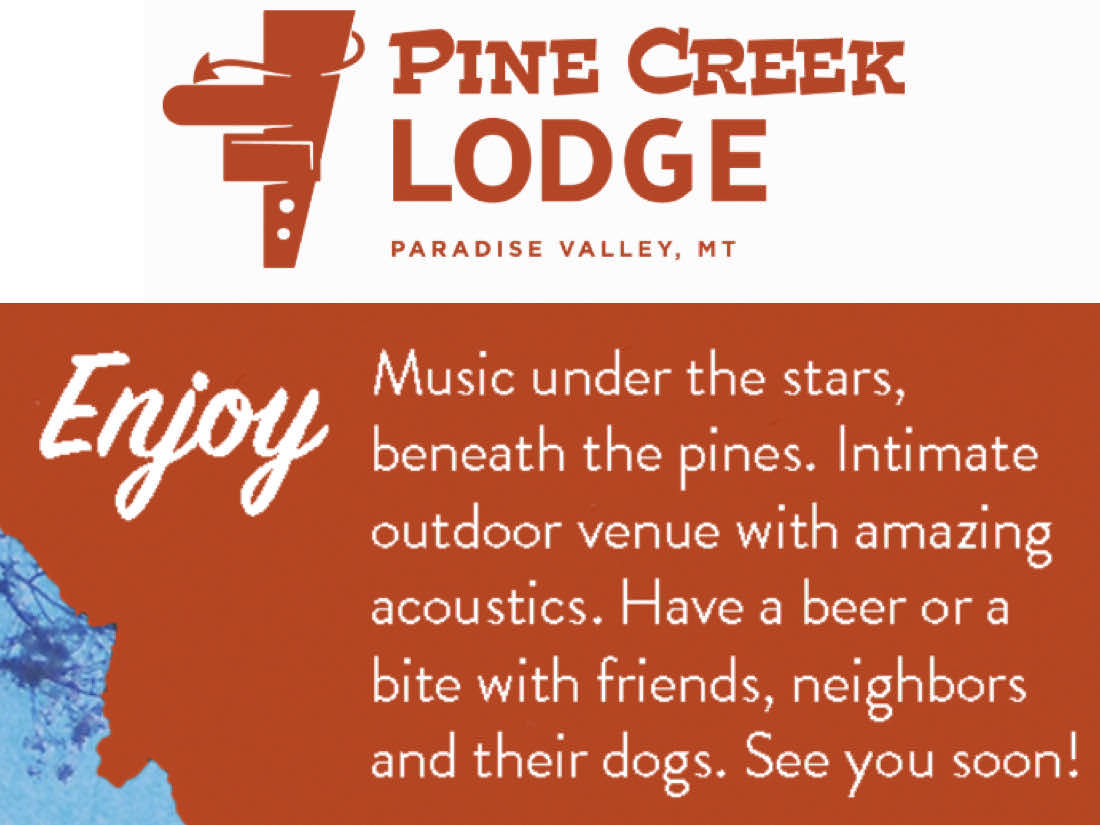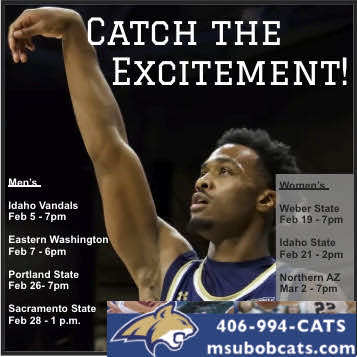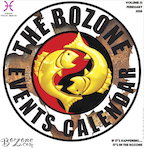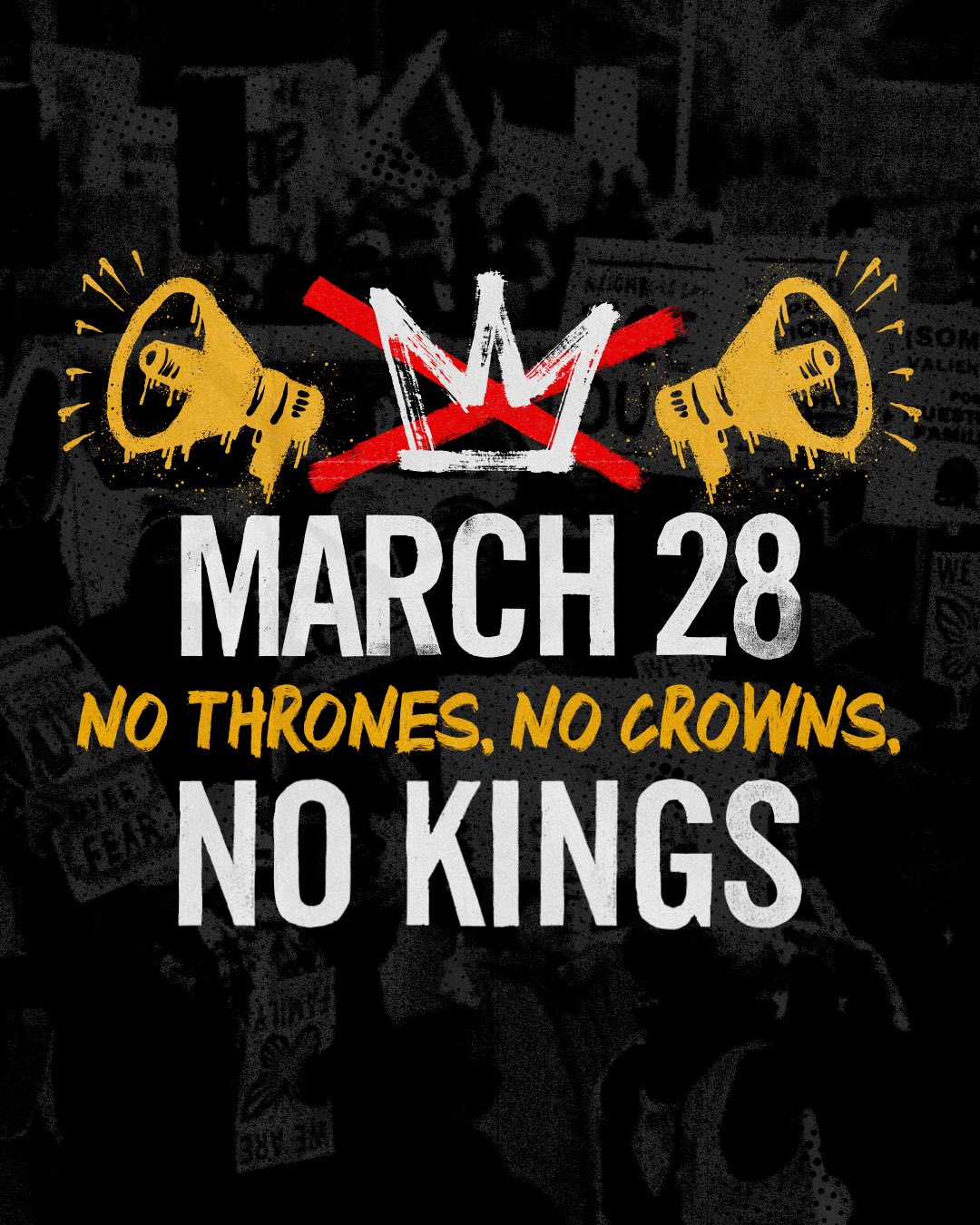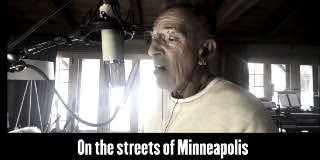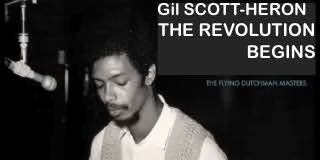Colorado-based and genre-blending quintet Elephant Revival are back on the road, stopping in at the Eagles Lodge Ballroom as they tour in support of their latest album, Petals.
Brought together by a unified sense of purpose, Elephant Revival communicates the importance of harmony among all living things and uses music to unite us in ways that no other medium can.
Petals embodies a deepening, as the group dives into themes of loss and rebirth, time and memory, love unbound by body or farewell. But this is not an album about despair or darkness—it’s a thanksgiving and a prayer for what endures and returns.
“There are some songs with a lot of different layers,” says vocalist and multi-instrumentalist Bonnie Paine, “from gritty string parts with a giant concert bass drum to ambient or edgy amp sounds with found objects like chains for percussion, and then there are some songs that are very stripped down and vulnerable with really raw vocals and intimate instrumentation. The new addition of pedal steel and cello, and the nature of some of the songs chosen, brought a sense of uncharted territory and welcomed a more exploratory approach.”
The music maintains its roots in American and Celtic songcraft, but on Petals, the band achieves a compositional maturity that, in moments, can evoke the modern classical ensemble. Eclecticism, though a key feature of their sound, has never been the point. For these multi-instrumentalists, these singers and writers, sound and song serve one another: the play between instrumentation, composition, emotion and restraint is an organic unfolding.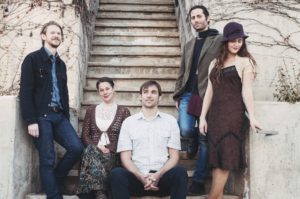
“Petals finds Elephant Revival more confident and assured than ever, affirming their affinity for hushed circumspect without sacrificing their trademark allure. … Indeed, they ply their skills with such subtlety and finesse that the results are consistently mesmerizing throughout.” – Relix
“If this [Elephant Revival] doesn’t make you smile, something is wrong with you.” – New York Times
“Intuitive rhythms augmented with unexpected hand claps; expansive acoustic instruments with tight, haunting vocals; gut-level intuition; Celtic dancing grooves; and plenty of progressive roots music.” – NPR
Elephant Revival is comprised of Bonnie Paine (washboard, djembe, musical saw, stompbox), Bridget Law (fiddle, octave fiddle), Charlie Rose (banjo, pedal steel, guitar, horns, cello, double bass), Dango Rose (double bass, mandolin, banjo), and Daniel Rodriguez (guitar, banjo, double bass).
In anticipation of their Bozeman show, The Rolling Zone was able to catch Bonnie on the phone to talk Petals, creative processes, and recognizing communication in its many diverse forms.
RZ: Hey Bonnie. How are you doing?
BP: I’m good, how are you?
RZ: Good. Thanks for chatting with me today.
BP: You’re welcome.
RZ: Your music has been described as “progressive transcendental folk.” Can you elaborate on that? How does Elephant Revival put its stamp on the greater bluegrass/folk scene?
BP: I don’t know if we call it transcendental folk. That would be a little presumptuous, I think, if we called ourselves that. [laughs] We do a lot of alternative folk-ish music, music that’s being played with folk instruments that doesn’t really have a category. [That] happens from time to time—we didn’t know what to call jazz before it came out. We’re just weaving a lot of different types of music together. We do a lot of Celtic tunes, folk and bluegrass, and rock, a little bit of reggae, a little bit of hip-hop, gypsy music.
RZ: You keep it interesting.
BP: Yeah. Totally.
RZ: The group has found purpose in the idea of “where words fail…music speaks.” What does that mean to you, and how does this band play its role?
BP: I think everything is always communicating. We’ve kind of closed our ears off to that and only acknowledge human language, a lot of times, as a means of communication. Even when a rock resisting your touch, that is communicating what that rock is. Once you start opening up to [the idea] that everything is in its own way communicating, then there’s music in everything. Music is one of the only other forms that is acknowledged as another mode of communication. That’s what that means to me, that’s why I love music. There’s a lot of things you aren’t able to put into words, at least I’m not able to. You can feel a minor chord lift into a major chord and it feels like someone just took a spider web off your heart or something.
RZ: If you can’t find the words, you find the notes.
BP: Mmm hmm.
RZ: You’re touring in support of your fourth album, Petals, released last April. How did the album come to be? What inspired the group to create this collection?
BP: This was fun. This was a very different process for us. We had different tools to play with. Charlie Rose had his pedal steel, which adds a lot of different flavors. I played cello for the first time on the album. I’ve written on cello for about fourteen years. Generally I’ll write on cello, teach parts to the band, then I’ll play percussion. On this album, I went ahead and played the cello parts. Through that, we’ve been inspired to bring another percussionist along with us, who I love, leaving me a little more room to play around with other instruments.
RZ: I believe you recorded Petals in a few places.
BP: We recorded most of it in Maine with Sam Kassirer, the keyboard player for Josh Ritter’s band—awesome band. He’s an amazing producer. He’s very welcoming to explore almost anything, so he just blew the walls open on all the songs and let things fall into place in a very different way than we’d ever really experienced ourselves sounding. But still, a very familiar way also. We definitely have a core sound together. Then we finished the rest of [the album] at eTown in Boulder, Co.
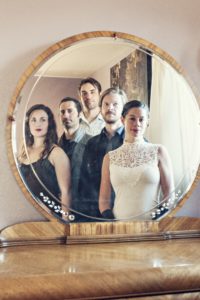 RZ: Elephant Revival celebrated 10 years not too long ago. How do you feel your music has evolved since your eponymous debut album? At the same time, what has it retained?
RZ: Elephant Revival celebrated 10 years not too long ago. How do you feel your music has evolved since your eponymous debut album? At the same time, what has it retained?
BP: I feel like there’s a little more dynamic with each album—dynamics with volume, and tempo, things fluctuating more. [We’re] getting a little more diverse with each album. All of us have of course developed our relationship with our instruments quite a bit, which has been very transformative. Somebody played our first album over the radio when we were on the airplane the other day, and we’re like, “Oh my God!” It was shocking, like, “Whoa, I wouldn’t have hit that note.” [laughs] So that’s interesting. There’s still a kind of fragility, but strength too I hope. To have a sense of perseverance or follow through, but also room for vulnerability.
RZ: When putting together a release, what songs make the cut?
BP: We let producers generally pick which songs are going to go on the album, because there are so many songs. We’ll just give them a list of like twenty songs and let them hear them all. Some of us might be disappointed because they wanted to sing this one song, but a phrase that always reoccurs when we get to that point is “whatever serves the song.” Whatever people can enjoy musically is what we’re here to put out. Not to cater to anybody’s ego or any preconceived ideas of this or that as far as the songs go, but what feels the most musical always has to be in the forefront of our priorities.
RZ: You share songwriting credits with fellow band members, but how does the creative process look for the group as a whole? Is it all hand on deck to create the music?
BP: It varies from song to song, but usually whoever is singing the song, wrote the song. They present it to the band in a circle, everybody just listens the first time around, then everybody decides which instrument to pick up. Once everybody feels their way around with which instrument feels most fitting, whoever wrote [the song] might have a preference to accent a certain pulse here, or do a descending string section melody there, and kind of [offer] gentle guidelines but still try to leave a lot of room for creative freedom. Everyone’s got great ideas too, so you don’t want to stifle that. It helps keep the process fun.
RZ: For those who’ve never been, what can people expect to see at an Elephant Revival show?
BP: Well there’s dancing, even if it’s a seated show. We’ll have people find little corners in the back and alongside the walls to dance. There’s some howling, a lot of good group howls, and a lot of sweetness. I’ve really been in awe of how sweet the people are who’ve [come] almost every single night when we play. That’s one of the benefits as we’ve grown as a band. You develop your crowd and then your crowd is kind of an extension of what you’ve created together. It’s such a good feeling. And I love the diversity in our crowds. Last night [was] all ages, all colors of people, all genders. I love that. It’s so thrilling to me to see people who might not normally get to experience very much together, be side by side moving together. That’s very powerful to me.
RZ: Everyone swings in unison. Do you have some favorite songs to perform?
BP: Whatever song we’re performing is generally my favorite. I’ve been really enjoying a few things. We played with the symphony a few months ago, in November, and that opened up my ears to certain songs. There’s an instrumental I wrote called “Flight Patterns,” and the conductor had some really nice ideas. He said he could tell I really wanted to have this dramatic tempo change, but I was afraid the band and the orchestra wouldn’t go with me. He said to just do it and make it even more extreme, make it really clear and write it into the music. “When everybody goes there with you it’s going to be so powerful.” And so we’ve been doing that, and every time we get to that part everybody just freaks out. It’s really fun. I enjoy that. But every song we’re playing is “the one.” I don’t want to favor any of them.
RZ: You’ve toured all over, from small venues to huge music festivals. Can you share an outstanding memory from your experiences?
BP: It’s been a crazy ride. One fun one, we were playing this little opera house in some small mountain town in Colorado and they had this disco ball setting with these crazy lights. I said how about we wait until the very last song in the set, then let’s kick on the disco ball and do this weird, really fast gypsy song that speeds up more and more and more, and just see what happens. It was a pretty mild crowd up until that. They were all really sweet and into it, but once we did that, this guy took all of his clothes off and started doing the worm across the floor. Then the next night, we played a very calm sit-down show at this place called Bongo Billy’s in Salida. We said something about what had happened the night before and this woman said, “That’s my husband!” It was just funny in such a different scene.
RZ: That’s awesome. Not something you’d expect.
BP: No. [laughs]
RZ: I hope something like that happens here.
BP: Totally. We’ve had so many fun things. We’re good friends with Vince Herman and he always adds special surprises to our shows throughout our history together. He showed up in snorkel gear once. We couldn’t tell who he was, then hopped on stage with this mandolin. I’m like, “Who the heck is this guy?” Then it turns out it’s Vince Herman of Leftover Salmon.
RZ: Elephant Revival has an interesting origin story in regard to its name. Would you mind repeating it for us in your own words?
BP: Dango, our bass player, was busking at the Lincoln Park Zoo in Chicago. There were three elephants that lived there. They’d been together for sixteen years. One was bought by the Salt Lake City Zoo and died [during transit]. Another died [in Chicago] from unexplained causes. They’re tribal creatures, so we perceived it as heartbreak. We were spread all over the country at the time, so we just saw that as a call to come together and make music like tribal creatures like to do.
RZ: Are you guys working on any new material in between touring?
BP: Yeah, we just had a good plugged-in session. We worked on old and new stuff, playing around with different sound ideas. It was fun, we had a great time. Now we’re on our first tour of the year.
RZ: Will any of that new stuff end up on a potential album or EP? Anything else you’re up to?
BP: Yep. It’s on pace. I’ve been also working on this story that a lot of my songs are a part of. I’m going to go spend some time in Scotland and Ireland, probably the San Juan Islands and try to finish this silky story that my mom is also helping me write. We’re going to get a choreograph and acrobatic dance to it, kind of a Cirque du Soleil vision.
RZ: Great. Best of luck with the new material and traveling before we see you here in Bozeman!
BP: Awesome. Thank you!
Elephant Revival will perform with a little help from special guest Steve Poltz on Saturday, March 11th at the Eagles Lodge Ballroom at 9pm. Tickets to this 21+ show are $20 plus fees in advance at Cactus Records and www.CactusRecords.net/. Tickets are $24 at the door. Doors at 8pm. Learn more about the band, their music, and watch the brand NEW video, “Petals,” along with videos from past live performances, by visiting www.elephantrevival.com/. •
Photos by Lisa Siciliano

